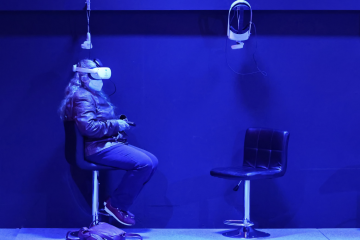Advances in technology have decreased the supply of human rights on the Internet. More software capable of monitoring Web activity is being developed each day. The immediate example most people can name is China’s Golden Shield Project, among its other, extensive Internet regulations.

It can be tricky to strike a balance between media transparency with maintenance of social or political power. Censorship is a challenging policy because countries must consider a trade-off between national interests and individual interests. Some regimes follow the tell-all method. Some believe that what the people don’t know won’t hurt them. Some use various media to their benefit, and for the dissemination of politically favorable propaganda. In this globalizing and democratizing world, where must regimes draw the line between political and ostensibly social censorship?
Not all censorship is negative. There are types of censorship which arguably uphold certain human rights and intellectual property rights.
Sometimes, religious conflicts of a terrorist nature can be prevented by pre-emptively blocking or deleting offensive content and hostile discussions from the Internet. Censorship is also key in hiding sensitive military and political information, which can be abused by an enemy state.
Plagiarism is also prevented through censorship – not censorship of film or music itself, but of the free downloading and alteration of content certain users are responsible for. Another example of censorship with good intentions is the monitoring of websites that contain sensitive information, like practical knowledge about nuclear engineering, as to keep it from terrorists and hostile states. Censorship through consensus, a situation in which society agrees to regulate for positive future impact, can benefit everyone.
But some forms of censorship threaten the freedom of speech and the right to information. Thus, they indirectly violate human rights. Too much regulation could, over the long run, create ignorance. For instance, censorship of all sex-related information, as practiced by some religious communities, can confuse and under-inform adolescents. Propaganda in favor of governments proves to be a threat against positive political development. The Internet is the dictator’s latest weapon in ascertaining control.
An Arizona school district recently banned all books outlining Mexican-American history for fears of infiltrating students’ with incorrect ethnic identities. It has also banned the study of Shakespearean plays such as “The Tempest.” CNN reported that this was done in order to avoid “biased, political and emotionally charged” teaching. While this act of censorship does not concern digital media, it is an example of excessive and baseless social censorship. It can be duplicated on an online platform and if so, the extent of intellectual damage can only magnify.
But – nuclear proliferation, civil wars, violent regime transitions, global warming, climate change, and poverty…. These are but a tiny list of problems facing the world as I write. So why should anyone care about censorship and digital media rights?
We should care because censorship policies can shape the future development of these contemporary crises. Seeing as how censorship is practiced widely in autocracies rather than democracies, it can become a barrier for potential social and economic growth. Governments must take security precautions to protect their state and citizenry from external threat, but should not be in a position to design the social order and beliefs of their dynamic and developing population.
Used appropriately, the Internet is a great didactic tool. As such, governments must balance their security concerns with the awareness that digital media can harness ideas from the young generation. There will always be dangers associated with too much knowledge, but restricting the access or content of knowledge does not solve the problem. Rather, it leads to ignorance – or perhaps, people’s heightened awareness of social, religious, political and cultural inequities that inhibit the democratic evolution of their societies.




